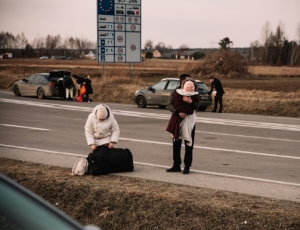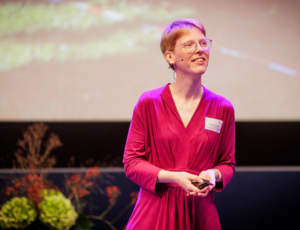Shivant Jhagroe
NIAS Theme Group Fellow

Project title
Deep ecology, Decolonisation and belonging
Research question
How can we understand 'eco-belonging' in Global North territories from a decolonial perspective, zooming in on embodied experiences, cultural narratives and political agency?
Project description
Deep ecology, posthumanism, and new materialism have long been seen as key to the changes needed for social and environmental justice. These ideas emphasise our connection to land and water, recognising that non-human life—such as animals, plants, and ecosystems—has its own value and ability to act in the world. However, they often overlook the privilege involved in being able to engage with the more-than-human world.
Jhagroe sets out to decolonise the posthuman at three levels. First, he looks at how dispossession and having access to land shapes our sense of responsibility towards nature (Federici 2004). Second, he critiques the importance of the idea of ‘pure and untouched nature’ in deep ecological thinking, and how this concept has often emerged alongside processes that have dispossessed people of their land (Ferdinand 2022). Deep ecological thinking promotes the idea that nature has intrinsic value, independent of its usefulness to humans, and advocates for a fundamental shift in how we relate to the environment. However, this ideal of nature is often tied to projects where people get deprived of access to land. Third, he considers the impact of colonial dispossession, which has led to many displaced people arriving in Global North countries, only to face further exclusion from wealth and land ownership (Jhagroe 2024).
This project examines ‘eco-belonging’ in Global North regions through a decolonial lens, focusing on lived experiences, cultural narratives, and political agency.
Selected publications
- Jhagroe, S. (2024). Voorbij duurzaamheid: op weg naar een ecorechtvaardige samenleving. Walburg Press (Amsterdam University Press): Amsterdam.
- Jhagroe, S. (2024). Institutionele witheid. Beleid en Maatschappij, 51(2), 193.
- Ostaijen, M. van, & Jhagroe, S. (2024). Publieke bestuurskunde: naar een agenda voorbij impact. Bestuurskunde, 33(3), 84-93.
- Sievers, E., Spierenburg, M., Jhagroe, S. S., & van Oudenhoven, A. P. (2024). Place-based knowledge transfer in a local-to-global and knowledge-to-action context: key steps and facilitative factors. Ecology and Society, 29(3).
- De Looze, A., ten Caat, S., Maiello, A., Jhagroe, S., & Cuppen, E. (2024). Temporalities of energy justice: Changing justice conceptions in Dutch energy policy between 1974 and 2022. Energy Policy, 191, 114174.
- Jhagroe, S. (2024). We moeten ons begrip van ‘natuur’ dekoloniseren. De Groene Amsterdammer. 8 juni 2024.
-

-
 Fellow
FellowTimothy Stacey
-
 Fellow
FellowTanja van Hummel
-
 Fellow
FellowJacob McLean